NIL
Tax-free NIL payments to college athletes? One state hopes it will give its schools an edge.
By Weston Blasi A bill exempting name, image and likeness earnings from state income tax has been signed into law in Arkansas The fight in recruiting college athletes will now include taxes. Colleges across the nation are locked in a constant battle over high school and college transfers to improve their sports teams, particularly in […]

By Weston Blasi
A bill exempting name, image and likeness earnings from state income tax has been signed into law in Arkansas
The fight in recruiting college athletes will now include taxes.
Colleges across the nation are locked in a constant battle over high school and college transfers to improve their sports teams, particularly in big revenue-generating sports like football and men’s basketball. Recruiting athletes is a tough endeavor, but colleges in Arkansas were just given a big edge.
Arkansas became the first state in the U.S. to enact a law that exempts name, image and likeness payments (NIL) from its state income tax. Arkansas Gov. Sarah Huckabee Sanders, a Republican, signed the bill into law in April, and it will be retroactive to Jan. 1, 2025 as part of the Arkansas Student-Athlete Publicity Rights Act.
Under the new law, all NIL and university revenue-sharing funds received by student athletes will be exempt from state income tax. The legislation also mandates that financial details concerning payments to athletes will be kept confidential and are not subject to the Freedom of Information Act.
“Income received by a student athlete from an institution of higher education as compensation for the use of his or her name, image, or likeness or as a percentage of institutional athletic revenue permitted by the institution of higher education’s governing athletic association or conference under this subchapter is exempt from state income tax,” the law states.
The top state income-tax rate in Arkansas for individuals is 3.9%.
Of course, this is a state-only law, and any income an athlete earns from NIL deals are still subject federal income tax.
See: Here’s how much money Shedeur Sanders lost out on by falling to the fifth round of the NFL draft
What will the implementation of this new law actually do? Experts said it’s mainly about recruiting players.
“A state would do this to really prioritize college athletics,” Daniel S. Greene, an attorney who specializes in business and NIL, told MarketWatch. “It’s all about recruiting and giving your schools the best chance to bring in the best kids any way you can.”
No state income tax could could help coaches and NIL collectives in their recruiting process, particularly to athletes who care most about maximizing earnings.
“I’ve followed state legislatures closely, and the states down south really care about college athletics, and they really want their football teams to be super competitive,” Green said. “They can say to their kids, ‘Hey come here, there’s also no taxes.'”
Tim Frith, a sports attorney at WLJ Sports Law, said this new regulation could be a “major recruiting tool for schools in Arkansas.”
But one lawmaker in Arkansas said that the new law won’t give Arkansas an unfair advantage over rivals – instead it will even the playing field. That’s because some nearby states that Arkansas competes with for top college athletes don’t have any state income tax at all.
The tax exemption will assist Arkansas schools in attracting athletes that bring “a significant amount of revenue to the state,” Arkansas Senate President Bart Hester said. And it also will help Arkansas schools “keep up with Tennessee and Texas and other states that do not have a state income tax,” he added.
In other states, such as Alabama, Georgia, Illinois and Louisiana, similar bills have been introduced but have not yet been signed into law.
See: Some Americans are stockpiling $220 sneakers before Trump’s tariffs raise prices even higher
The move by Arkansas comes as the the NIL system surrounding college athletics is being stressed.
Top college football players are now earning millions annually through NIL deals. For instance, University of Miami quarterback Carson Beck’s NIL value is $4.3 million, and Ohio State wide receiver Jeremiah Smith’s is $4 million, according to On3.
The NCAA recently approved rule changes in April that could significantly alter college sports. These proposals involve revising NIL guidelines and establishing a revenue-sharing model where schools could distribute $20.5 million across all athletes in all sports.
In an unprecedented event this month, a college quarterback effectively held out for a better NIL contract, a tactic usually seen in professional sports. Former University of Tennessee quarterback Nico Iamaleava missed practice and subsequently transferred to UCLA due to discontent with his NIL earnings and his situation with the team.
“I’m not certain that this is going to become very common, as collectives have become wiser and craftier in the creation of their contracts, which tend to seek to avoid situations like this,” Darren Heitner, a lawyer who brokers NIL deals for student athletes, told MarketWatch about the holdout. “I have seen many such arrangements where collectives seek to claw back monies paid out or even receive liquidated damages, but I wonder whether athletes will be deterred unless/until a major action is initiated to enforce such language.”
Read on: EA’s upcoming college-football game ‘taking advantage’ of players with $600 payment, expert says
-Weston Blasi
This content was created by MarketWatch, which is operated by Dow Jones & Co. MarketWatch is published independently from Dow Jones Newswires and The Wall Street Journal.
(END) Dow Jones Newswires
04-29-25 1806ET
Copyright (c) 2025 Dow Jones & Company, Inc.
NIL
Ryan Silverfield fires back at Jeff Traylor after NIL comparison
The rivalry between Memphis football and UTSA has stretched into 2025. Ahead of the Memphis-UTSA football game in 2024, UTSA coach Jeff Traylor said Memphis had six times more NIL money than UTSA and that the Roadrunners needed to invest more money in their program. The Tigers set their pregame hype video to “Got Money” […]
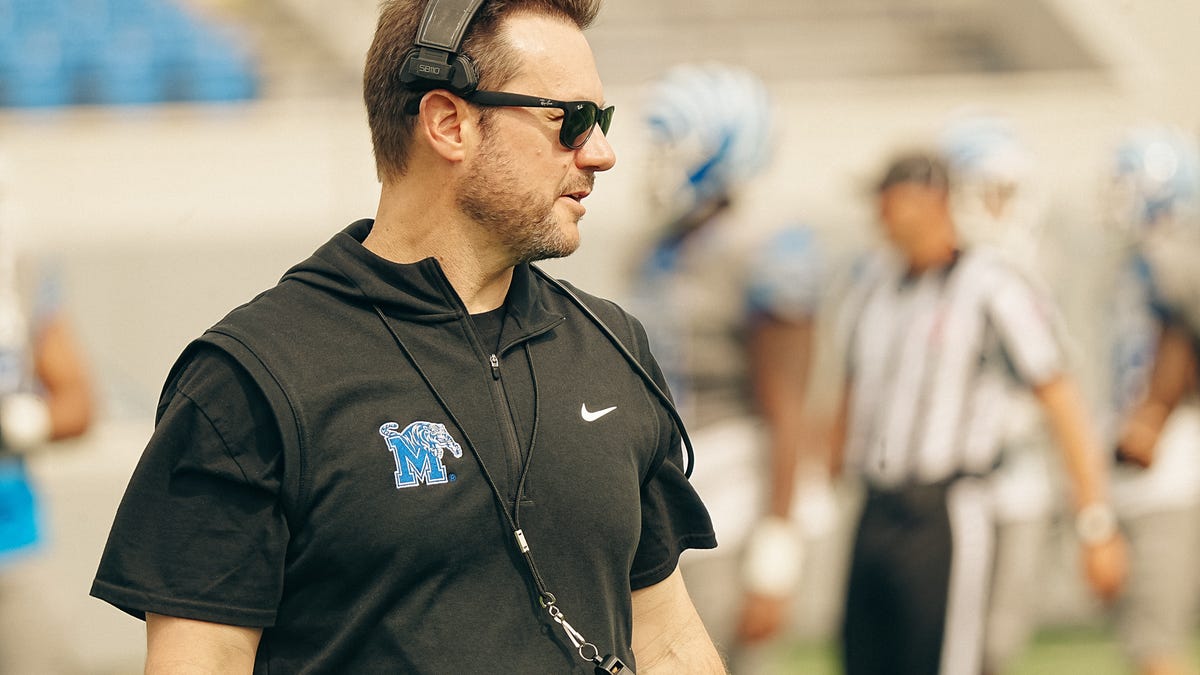
The rivalry between Memphis football and UTSA has stretched into 2025.
Ahead of the Memphis-UTSA football game in 2024, UTSA coach Jeff Traylor said Memphis had six times more NIL money than UTSA and that the Roadrunners needed to invest more money in their program. The Tigers set their pregame hype video to “Got Money” by Lil Wayne.
Then the Tigers lost 44-36. It was a damaging loss that knocked Memphis out of contention for the AAC title game.
Memphis football coach Ryan Silverfield appeared on Grind City Media’s “Chris Vernon Show” on June 11 and addressed the situation.
“That head coach signed a $27 million contract,” Silverfield said of Traylor. “He should probably give some of that money back to the school, right? But hey, they beat us so I can’t say much. He’s a good coach, he’s done a good job with that program.”
UTSA went 7-6 in 2024, while Memphis went 11-2.
The two teams don’t play each other in 2025. But both will be expected to compete at the top of the conference.
UTSA brought back starting quarterback Owen McCown and is positioned to have one of the top offenses in the AAC. Memphis has had significant roster turnover, but the Tigers brought in a strong transfer class and should be competitive on both sides of the ball.
Reach sports writer Jonah Dylan at jonah.dylan@commercialappeal.com or on X @thejonahdylan.
NIL
Appeal alleging House v. NCAA settlement ‘ignored’ Title IX will pause back pay plans
Eight female athletes filed an appeal of the House v. NCAA settlement Wednesday in a California federal court, arguing that the landmark agreement violates Title IX. The appeal only addresses the back damages portion of the settlement, not the portion that establishes the system of direct revenue sharing with athletes. The watershed settlement, approved late […]

Eight female athletes filed an appeal of the House v. NCAA settlement Wednesday in a California federal court, arguing that the landmark agreement violates Title IX. The appeal only addresses the back damages portion of the settlement, not the portion that establishes the system of direct revenue sharing with athletes.
The watershed settlement, approved late Friday night by federal judge Claudia Wilken, has been years in the making. Last October Wilken granted the settlement preliminary approval, then waded through hundreds of objections filed over the ensuing eight months. Many of those objections were related to Title IX, the federal law that prohibits sex-based discrimination in education and requires schools to offer equitable opportunities to women, including in sports.
Wilken was unmoved by those objections, repeatedly saying the antitrust case had nothing to do with Title IX. But she did leave the door open for future lawsuits based on Title IX targeting how future payments from schools to athletes will be made.
The appeal will not impact revenue sharing — slated to start July 1 for all schools that have opted in — but will pause the back-pay damages portion of the settlement.
John Clune, an attorney who represents the eight women filing the appeal, said he also filed an objection during the settlement adjudication process but that nothing came of it.
“We felt like we were standing on the table waving our arms that somebody had to address this issue, but none of the parties involved wanted to address it, and the courts didn’t want to address it,” Clune told The Athletic, saying Title IX was “deliberately ignored.”
“This was the only option.”
“The injunction set by the court and agreed to by the NCAA, defendant conferences and student-athlete plaintiffs provides significant stability to college sports and enables schools to provide direct financial benefits to students-athletes totaling nearly 50% of athletics department revenue,” the NCAA said in a statement Wednesday. “The NCAA is moving forward with implementing the settlement injunction to deliver this massive win for student-athletes.”
“The Title IX issues do not belong in this antitrust case,” said Jeffrey Kessler, one of two lead plaintiffs’ attorneys in House v. NCAA. “They were thoroughly considered and properly rejected by the district court. Yet these objectors are callously delaying the distribution of damages to more than one hundred thousand athletes waiting for them so that they can quixotically pursue Title IX issues that have nothing to do with this settlement.”
The eight women represented in the lawsuit are Kacie Breeding from Vanderbilt; Lexi Drumm, Emma Appleman, Emmie Wannemacher, Riley Hass, Savannah Baron and Elizabeth Arnold from the College of Charleston; and Kate Johnson from the University of Virginia.
Drumm, a recently graduated soccer player, said she joined the appeal because female athletes have not been given the same priority as male athletes, especially those that compete in traditional revenue-generating sports such as football and basketball.
“I think for so long female athletes have just been OK with getting whatever scraps are left and are told just to be thankful that they’re even competing and not aspire for more,” said Drumm, a business administration and political science major who is heading to law school in the fall. “Title IX is supposed to be a promise to get a full seat at that table and not just get the scraps.”
The appeal argues that the $2.8 billion in damages set to be distributed to former athletes who couldn’t earn NIL (name, image and likeness) money before 2021 violates Title IX because female athletes will be paid less than football and men’s basketball players.
“I understand in a professional sphere that, I totally get it, different salaries, different revenue,” the 22-year-old Drumm said. “That’s a business, but college athletics, wasn’t supposed to be that. And I think that we need to take a step back and realize the implications that it’s having on female athletes.”
Clune said the settlement suggests “schools would have paid male athletes over 90 percent of their revenue over the past six years as though Title IX didn’t apply. If Nike wants to do that, that is their choice. If the school, or a conference acting on the school’s behalf tries to do that, they are violating the law.”
“They can either pay the athletes proportionately, or they can return all of their federal funds,” he said. “But they can’t do both.”
Clune said his clients “support a settlement of the case, just not an inaccurate one that violates federal law. The calculation of damages is based on an error to the tune of $1.1 billion. Paying out the money as proposed would be a massive error … Congress has expressly rejected efforts to prioritize benefits to football and basketball from Title IX’s requirements.”
Clune said the Title IX implications for future payouts are still to be determined. In the meantime, the appeal process is a “slow burn,” with a briefing schedule and oral arguments likely to be set in the next nine to 12 months.
“It wouldn’t surprise me if we see lawsuits against schools for those (rev share) payouts at some point,” he said.
(Photo: Andy Lyons / Getty Images)
NIL
Historic House v. NCAA settlement to benefit Seton Hall’s basketball programs
June 6 will be remembered as a day that changed the world of college sports forever—especially for both student-athletes and small universities like Seton Hall. After five years of litigation, Judge Claudia Ann Wilken approved the House v. NCAA settlement on Friday. Starting July 1, universities will be able to directly share revenue with their […]
June 6 will be remembered as a day that changed the world of college sports forever—especially for both student-athletes and small universities like Seton Hall.
After five years of litigation, Judge Claudia Ann Wilken approved the House v. NCAA settlement on Friday. Starting July 1, universities will be able to directly share revenue with their student-athletes for the first time in history—bringing an end to a system based on “amateurism” that stood for over 100 years.
The class-action lawsuit was filed in 2020 by Grant House and Sedona Prince, two former student-athletes who believed the NCAA’s rules which prevented them from compensating, despite them generating immense revenue for their respective universities, was unfair and exploitative. They also sought damages for student-athletes like themselves who lost NIL opportunities to profit before the NCAA’s 2021 policy change, which allowed compensation from third parties and collectives for that very reason.
While intended for student-athletes, the landmark decision benefits others as well. To ensure an equitable distribution of revenue and a level playing field, a key component of the $2.8 billion settlement is an annual cap system that allows universities to share up to $20.5 million directly with student-athletes. With universities held to the same revenue-sharing standard, this part of the settlement will be beneficial to smaller universities—like SHU—who struggle to compete with larger universities that have greater access to resources and funding.
As previously discussed in The Setonian, a lack of resources was a detriment to SHU’s men’s basketball program last year. Amidst what was the worst season in program history, NJ.com reported that SHU’s NIL budget was an estimated $1.5 million—the lowest in the conference.
With the settlement, that budget will increase exponentially, and the future of the men’s basketball program will look brighter than last year may have suggested.
As such, the news of the settlement was well-received and embraced by the SHU community—especially the university’s athletics department. On Tuesday, just a few days after the news, SHU Director of Athletics Bryan Felt discussed the settlement and its impact on the university in a press release posted to the university’s athletics website.
“This past weekend marked a defining moment not just in the history of college athletics, but in the heart of the game we all love,” Felt said.
Before discussing the settlement, Felt first ensured that the university’s mission and commitment to its student-athletes hadn’t changed following its approval.
“First, let me say this: our commitment to excellence has never wavered,” he said. “Our overall mission, as we have navigated the constant changes within college athletics, has [always] been the commitment to our student-athletes and how we position ourselves for long-term success.”
Following what was a tough year for SHU basketball, especially for the men’s program, Felt thanked the community for being “the heartbeat of the program(s)” and staying loyal “through [both the] highs and lows.”
“You’ve packed Prudential Center and Walsh Gym, followed us on the road, believed in our student-athletes, and lived and breathed Pirate Blue,” Felt said. “[And] for that, I thank you deeply.”
Felt said that the university’s “revenue sharing efforts will be geared towards men’s and women’s basketball,” something that most schools will not be able to do because they have to divide their revenue amongst their football and basketball programs, with the former taking a majority.
Along with other Big East universities, SHU’s lack of a football program will allow them to invest almost exclusively in their basketball programs.
Felt also added that by switching to a roster cap model, SHU Athletics can offer more student-athletes scholarship opportunities across 14 varsity sports.
In anticipation of the settlement’s approval, Felt said that Athletics had been working tirelessly to “ensure Seton Hall not only adapts but thrives in this new era” of revenue-sharing and student-athlete compensation.
“We have had to make difficult decisions that include operational reductions, and I’m deeply grateful to our university administration and campus partners for their collaboration throughout this critical planning process,” Felt said.
And yet, although Athletics is responsible for providing the framework for the future of the university’s athletic programs, Felt called on the support of the Pirate community to help that future become a reality.
“Your support—whether through ticket sales, donations to the Pirate Blue Athletic Fund, corporate partnerships, or simply showing up and making noise—fuels (our programs),” he said. “It ensures Seton Hall remains a force in the Big East and on the national stage.”
Felt concluded the press release by emphasizing that collaboration between the university’s department and fans is key to not only helping SHU return to its former glory and but also for the university to become a leader in this new era of college sports.
“Let’s show the world that Seton Hall is ready—not just to play, but to lead,” Felt said.
Zachary Mawby is the head editor of The Setonian’s Sports section. He can be reached at zachary.mawby@student.shu.edu.
NIL
Cirovski Announces 2025 Maryland Men’s Soccer Schedule
Story Links 2025 Schedule Get A Maryland Pride Pass COLLEGE PARK, MD — Maryland men’s soccer head coach Sasho Cirovski has announced the schedule for the 2025 season. The schedule features non-conference road match-ups against Wake Forest and Georgetown, as […]
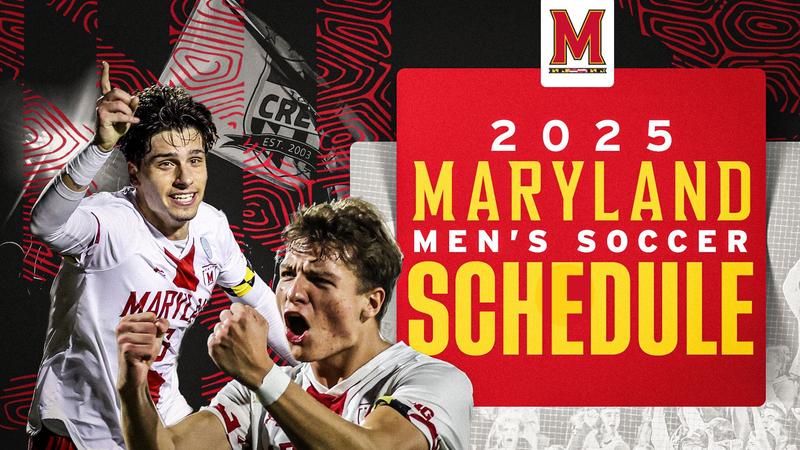
COLLEGE PARK, MD — Maryland men’s soccer head coach Sasho Cirovski has announced the schedule for the 2025 season. The schedule features non-conference road match-ups against Wake Forest and Georgetown, as well as a home contest against Pitt. In conference play, the Terrapins host the likes of Northwestern, Michigan, Rutgers, Indiana, and Washington at Ludwig Field.
“We are excited about the challenge that this schedule will pose for our squad as we head into the season”, said Coach Cirovski. With a strong group returning players and talented newcomers coming into the fold, we are thrilled with where this team is as we prepare for the 2025 campaign. The goal at Maryland as always is to strive for excellence and compete for championships, and we believe this schedule will prepare us for the tasks ahead.”
The Terrapins open their 2025 season on the road against Wake Forest on Aug. 21, a rematch of the 2024 NCAA Tournament second round meeting. The Terps then return to the DMV on Aug. 25, as they travel to the Nation’s Capital to face Georgetown.
The Terps return to Ludwig for their first home match of the season, hosting Bucknell on Aug. 29 for the first Friday Night Lights match of the season. This begins a three-game home stand where the Terps will also face Saint Francis (Sept. 1) and Pacific (Sept. 6).
Maryland begins Big Ten play on the road in 2025, traveling to Wisconsin on Sept. 12. The Terps then return home for a match against Pitt on Sept. 19.
This will mark the first meeting during the regular season between the Terps and the Panthers since the 2013 season, when both teams were members of the ACC. The Terps defeated the Panthers in that last meeting by a score of 2-0 at Ludwig Field.
Maryland closes out the month of September with a pair of conference opponents, first traveling to State College for a road match against Penn State on Sept. 23. The Terrapins then return home to College Park to face Northwestern on Sept. 26
The Terps open up the month of October with a trip out west to face UCLA on Oct. 3. The match will be the 15th all-time between the Terps and the Bruins, with the series tied at 6-6-2. The two programs met last season in College Park, playing to a 1-1 draw.
This is followed by two home matches for Maryland, first hosting Michigan on Oct. 10. After a home contest with the Wolverines, the Terps host the Rutgers Scarlet Knights on Oct. 14. The Terps then hit the road to the Buckeye State for a match against Ohio State on Oct. 18.
The Terps finish October with a three-pack of contests at Ludwig Field, beginning with an Oct. 24 fixture against Indiana. The Terps then face New Haven (Oct. 27), before closing out the month on Halloween Night against Washington.
The Terps will close out the regular season on the road, traveling to East Lansing to face Michigan State on Nov. 7.
Game times for the season are subject to change, with television designations announced at a later date.
Eight starters from the 2024 squad will return for the Terps, including First Team All-Big Ten performer Leon Koehl, Second Team All-Big Ten honoree Colin, as well as Big Ten All-Freshman Team goalkeeper Laurin Mack.
Terp fans can now purchase a Maryland Athletics Pride Pass for the upcoming athletic season for $99. The Pride Pass is an all-Olympic sports season ticket that admits the holder to all events for the following sports: Men’s Soccer, Women’s Soccer, Volleyball, Men’s Lacrosse, Women’s Lacrosse, Wrestling, and Baseball. Terrapin Club members can purchase a Pride Pass for $89. To receive this discounted offer, click the link here to login and the discounted price will be displayed.
NIL
Georgia football spring transfer portal updates
As the football season approaches, Georgia football continues to adapt to the evolving landscape shaped by NIL and the transfer portal. While the Bulldogs saw the departure of key players this offseason, they also capitalized on the chance to add talented players at critical positions. With a revamped roster, all eyes will be on Athens […]


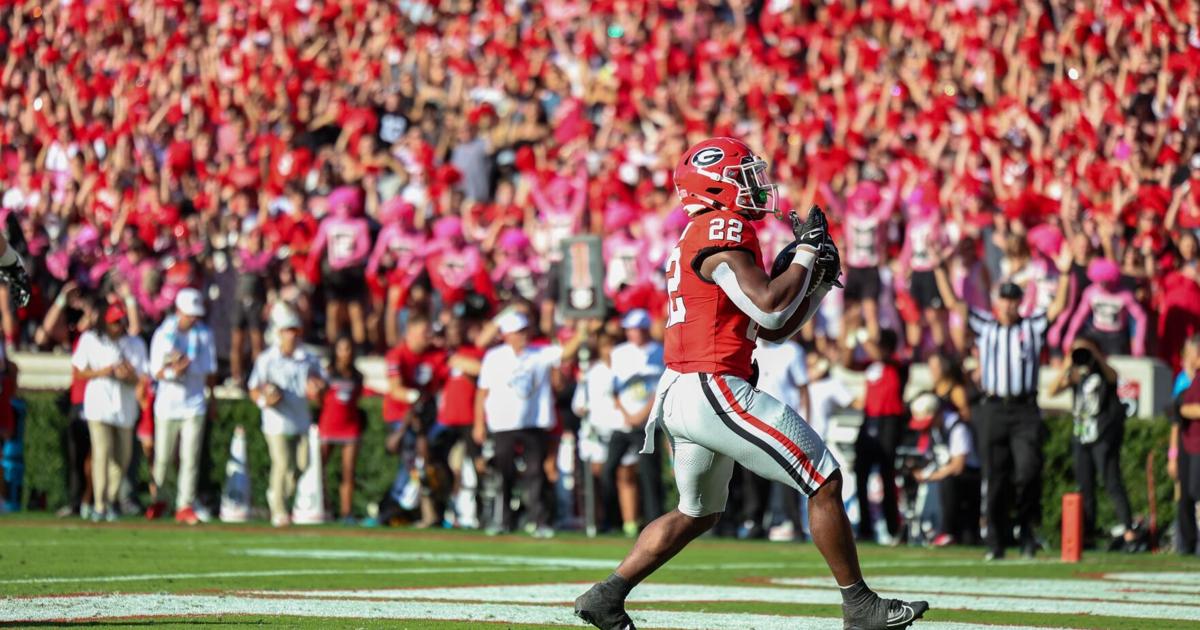
As the football season approaches, Georgia football continues to adapt to the evolving landscape shaped by NIL and the transfer portal. While the Bulldogs saw the departure of key players this offseason, they also capitalized on the chance to add talented players at critical positions. With a revamped roster, all eyes will be on Athens in the fall to see if they can return to the top of the SEC and the College Football Playoff.
The Bulldogs lost a handful of players to the transfer portal this spring, including some key players on the offensive side of the ball.
Running back Branson Robinson stayed in state as he transferred to Georgia State. Robinson appeared in 18 games for the Bulldogs, running for 403 yards and six touchdowns.
Wide receivers Michael Jackson III and Nitro Tuggle both transferred to Purdue, along with interior offensive lineman Marques Easley. Quarterback Jaden Rashada transferred to Sacramento State and defensive back Chris Peal committed to Syracuse.
Despite all of these losses, Kirby Smart and the Bulldogs added plenty of players who could fill the void of players who left in the spring portal.
Robinson’s departure left a hole at running back, so Georgia went out and got the commitment of Illinois’ Josh McCray. Last season, McCray ran for over 600 yards and 10 touchdowns for the Fighting Illini.
To help bolster the offensive line, the Bulldogs brought in Waltclaire Flynn Jr. from UCF. Flynn Jr., with four years of eligibility left, provides depth to the offensive line unit.
Georgia bolstered their defensive front by signing defensive tackle Joshua Horton from Miami and outside linebacker Elo Modozie from Army. Modozie led Army in sacks a season ago with 6.5, so look for him to make an immediate impact off the edge.
NIL
Sports Fans Welcome Cannabis Brand Sponsorships For Teams In Professional Leagues …
A majority of sports fans across multiple leagues—from NFL to pro tennis and NBA to NASCAR—say it’s acceptable for cannabis companies to sponsor teams, according to a new survey. As more professional sports leagues loosen policies around marijuana use among players, and some have allowed for cannabis-related sponsorships, the poll from Performance Research and Full […]


A majority of sports fans across multiple leagues—from NFL to pro tennis and NBA to NASCAR—say it’s acceptable for cannabis companies to sponsor teams, according to a new survey.
As more professional sports leagues loosen policies around marijuana use among players, and some have allowed for cannabis-related sponsorships, the poll from Performance Research and Full Circle Research found either majority or plurality support for letting cannabis brands partner with teams.
There was more support for allowing CBD-related sponsorships, as opposed to deals with “THC brands,” but in no case was there majority opposition to either kind of partnership among fans of nine different sports leagues: NFL, NBA, MLB, MLS, UFC, NHL, Pro Tennis, Pro Golf and NASCAR.
Here’s the percentage of sports fans across those leagues who say it’s “completely” or “mostly” acceptable for CBD companies to sponsor teams:
- MLS: 73 percent
- UFC: 68 percent
- Pro Tennis: 64 percent
- NHL: 62 percent
- Pro Golf: 62 percent
- NBA: 60 percent
- NASCAR: 56 percent
- NFL: 55 percent
- MLB: 55 percent
Here’s the percentage of sports fans across those leagues who say it’s “completely” or “mostly” acceptable for THC companies to sponsor teams:
- MLS: 69 percent
- UFC: 60 percent
- NHL: 55 percent
- Pro Tennis: 53 percent
- NASCAR: 53 percent
- NBA: 50 percent
- Pro Golf: 49 percent
- NFL: 46 percent
- MLB: 46 percent
The survey included 1,o00 sports fans over the age of 21 in the 24 states where recreational marijuana is legal and was conducted between April 23-26.
“I think there’s no longer a justifiable reason to be shy about this,” Jed Pearsall, president and founder of Performance Research, told Sports Business Journal, which first reported the poll results.
The outlet reported that the survey also showed that a majority of sports fans’ perceptions of leagues and teams are either positively affected or unchanged due to cannabis sponsorships—though it also found that only 17 percent are aware of any such specific partnerships.
“I think those on the sales side can aggressively sell these opportunities and those on the sponsor side should realize that these opportunities will be welcome where they go,” Pearsall said. “Sports has a way of normalizing things, and that’s good for the cannabis industry, and those marketing with it.”
To that point, major sports leagues have been gradually reducing the stigma against cannabis use, with policy changes for players and professional affiliations with the industry.
For example, the NFL recently reached an agreement with its players union to further reform its marijuana policies, significantly reducing fines for positive tests while increasing the allowable THC threshold for players.
About four years after NFL ended the practice of suspending players over cannabis or other drugs as part of a collective bargaining agreement, the league has again revised its Substances of Abuse Policy and Performance Enhancing Substances Policy.
The National Collegiate Athletic Association (NCAA) last year voted to remove marijuana from its banned substances list for Division I players.
The reform builds on a 2022 change that increased the allowable THC threshold for college athletes, aligning NCAA’s rules with those of the World Anti-Doping Agency (WADA).
In October, Nevada regulators officially adopted a rule change that will protect athletes from being penalized for using or possessing marijuana in compliance with state law.
The head of the U.S. Anti-Doping Agency (USADA) blasted the “unfair” ban on marijuana for athletes competing in international sport events, including the Olympics that were underway in Paris at the time of the comments.
USADA CEO Travis Tygart said it was “disappointing” that WADA has maintained the cannabis prohibition based on what he considers a misguided justification.
WADA did carry out a review into its marijuana policy at the request of USADA and the White House Office of National Drug Control Policy (ONDCP) following the controversial suspension of U.S. runner Sha’Carri Richardson, who was barred from participating in the Olympics in 2021 after she tested positive for THC. Richardson said she used cannabis to cope with the recent passing of her mother.
While UFC announced in late 2023 that it was formally removing marijuana from its modified banned substances list for athletes, the league notified participants that the reform didn’t apply under California State Athletic Commission (CSAC) rules.
UFC advised fighters that they could be subject to a $100 fine by CSAS if they tested over 150 nanograms of THC per milliliter ahead of the UFC 298 event that took place in February.
At the beginning of 2024, the Brooklyn Nets and New York Liberty entered into partnerships with a CBD beverage company—the first teams in the NBA and WNBA, respectively, to forge deals with the cannabis industry.
The New York-based clubs are partnering with Mynd Drinks, a hemp-based CBD sparkling beverage company that also made history last year when it became an official partner of the Major League Baseball (MLB) team the Chicago Cubs.
Last year, NFL announced it was partnering with Canadian researchers on a clinical trial to test the safety and efficacy of CBD for pain management and neuroprotection from concussions—key issues for many football players who experience injuries as part of the game.
Separately, NFL and the Denver Broncos last year asked a federal court to reject a player’s lawsuit alleging discrimination over penalties he incurred due to positive THC tests from his prescribed use of a synthetic cannabinoid.
In a joint motion to dismiss filed with the U.S. District Court for the District of Colorado, the league and team defended their marijuana policy for players, affirming it’s their view that use of cannabis can lead to on-field injuries, poor job performance and “alienation of the fans.”
Mike Tyson Promotes His Marijuana Brand During DEA Lab Visit Following Meetup With Trump
-

 NIL2 weeks ago
NIL2 weeks ago2025 NCAA Softball Tournament Bracket: Women’s College World Series bracket, schedule set
-

 Health7 days ago
Health7 days agoOregon track star wages legal battle against trans athlete policy after medal ceremony protest
-
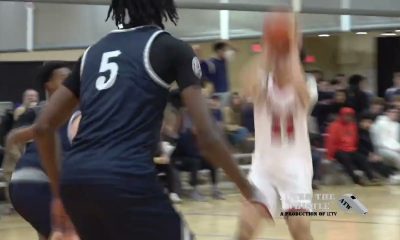
 College Sports2 weeks ago
College Sports2 weeks agoIU basketball recruiting
-

 Professional Sports1 week ago
Professional Sports1 week ago'I asked Anderson privately'… UFC legend retells secret sparring session between Jon Jones …
-
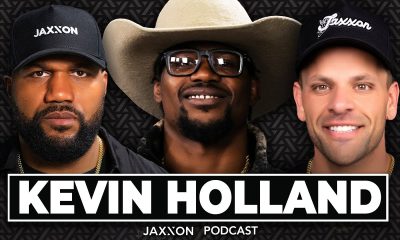
 Professional Sports1 week ago
Professional Sports1 week agoUFC 316 star storms out of Media Day when asked about bitter feud with Rampage Jackson
-
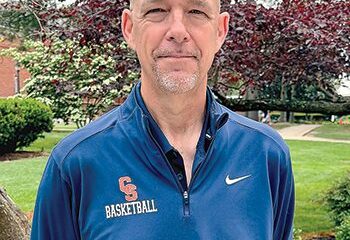
 Rec Sports2 weeks ago
Rec Sports2 weeks agoScott Barker named to lead CCS basketball • SSentinel.com
-
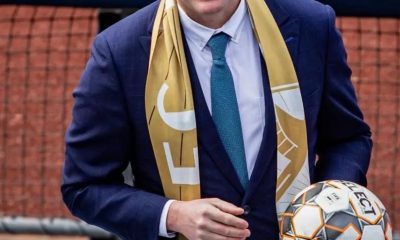
 Rec Sports2 weeks ago
Rec Sports2 weeks agoJ.W. Craft: Investing in Community Through Sports
-
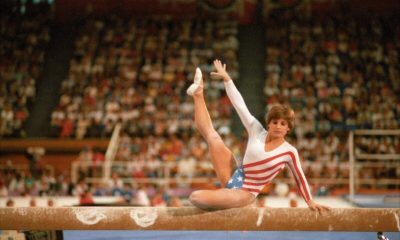
 College Sports2 weeks ago
College Sports2 weeks agoOlympic gymnastics champion Mary Lou Retton facing DUI charge
-

 Motorsports2 weeks ago
Motorsports2 weeks agoNASCAR Penalty Report: Charlotte Motor Speedway (May 2025)
-
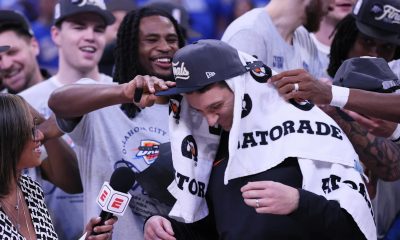
 College Sports1 week ago
College Sports1 week agoOKC’s Mark Daigneault knows what it takes to win championships. His wife has won a ton of them



































